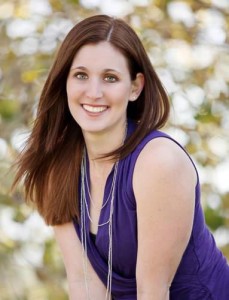MFA Monday
A post from our scholarly dance guru, Dr. Alexis Weisbord, to bolster your blah Monday!
Read on Framers….
—————————
On Networking and Building a Professional CommunityWhen entering a professional interaction, I think about the networking opportunities, whether these people can recommend me for a job, or if they may even be sitting on an interview panel. The thing is, you never know when, where, or with whom a professional relationship might begin.
When I first meet people, I’m typically a pretty shy person, and I think I knew clearly somewhere in my first year of graduate school that I was in over my head. The idea that I needed to pass myself off, as a credible “professional” while surrounded by these accomplished people, seemed outlandishly impossible. I could have made the choice to leave school for a year or two and get what I needed to feel more confident in my work, however that simply isn’t my way. Tell me I can’t do something and I will travel to the ends of the earth to make it happen, so rather than believe that I wasn’t capable, I was determined to push through, no matter what that meant. I was 22, single and had nothing to lose…. except my pride
It can take me a long time to relax enough around new people, especially groups, to feel like I can share anything personal, so I got really lucky when a woman who graduated a year earlier than me from my undergraduate program also decided to go to UC Riverside for the same graduate program. Although she wasn’t someone I was social with at the time, we decided to live together because it meant it was half the price of living alone. We didn’t know each other well, and while we certainly had our ups and downs, we quickly learned that having someone to share your day with (especially the part at the end when you cried because you felt like a fish out of water) was better than being alone. She taught me to knit and I taught her the value of junk TV meant for teens. We learned which “Two Buck Chuck” wine we both liked and determined that any reason was a good one for champagne. She learned to cook the occasional red meat and I learned to enjoy my cereal with rice milk. But most of all, for the entire three years we lived together, we never had a bad day at the same time. This meant that when I was at my lowest, she felt confident enough to give me the words of encouragement I needed; when she was homesick, I was there to remind her of all the awesome things we were working on in our program.
For all of the drama that comes with living with someone you also work with (and we later shared an off campus employer), having my roommate meant a built-in support system, and together, we slowly got to know others in our program. I am not sure I would have accomplished this as quickly as I did if I had not had someone to help start the conversations. It is because of that one relationship that I went on to form friendships with people who have supported me in more ways that I can count. These women celebrated my marriage with me, were there in some of my deepest moments of personal despair, talked through research ideas with me, and provided me wonderful professional experiences.
All of this is relevant when approaching graduate school. Your peers are both your current and future professional community. Being professional, I believe, is crucial to being a successful graduate student, and not just for the sake of your professors. The way you present yourself in your coursework, and even socially to a certain extent, will attract people to you or put them off. They will either see you as pretentious or relatable, as a collaborator or a speed bump. They might appreciate you for your research skills and knowledge of psychoanalytic theory only, or they might know you are the person to help manage their first production after you graduate. The point is, by the time your first year is complete, your colleagues will know pretty much all your strengths and weaknesses as a professional. This becomes part of your professional identity, because you never know what institution your colleagues will end up at or who they might already know. These people will be your greatest resource after graduation.
With that said, more than anything, these people will understand a part of your life experience that no one else can. If my experience is any indication, you will need them for years to come to help process what the graduate school experience was and how it has and will affect your future. I had a close knit group of friends from undergrad, but I missed out on them meeting their spouses. I missed out on the biggest productions they have produced in their careers thus far. I missed out on celebrating their honors and accomplishments. And they missed mine. Thousands of miles of distance will do that. However, it was my friends from grad school who I first introduced to my would-be husband. Those same women who I was so intimated by that first semester planned my bachelorette party. It was that shockingly brilliant group of people that helped celebrate my move in to my first home. So now I have two separate groups of people in my life, each with dramatically different first hand experiences. People from both eras in my life know me well, still to this day, and now I have this amazingly broad base of intelligent, driven and diverse artists and scholars that I can call on at any time. No matter what kind of professional or personal advice I might be in need of, there is someone in my life to give it. Some of them have a couple of more decades of life experience than me, others are in similar phases of life, but there is something for me to learn from every one of them. And more amazing than even that is that these women support me in everything, professionally and personally. They encourage me to do things when I am most afraid of failing, stop me before I do something in which I will definitely fail, and I know that if I do fail, they would still be there for me.
So when you meet people in your graduate program, take some time to get to know them not because of what they can do to further your career, but because of what they might offer your soul in your lowest and greatest moments. Some of them will likely become your extended family. And no matter the professional outcome of your graduate school experience, the personal rewards of these friendships will always be the greatest.
———————————-
 Dr. Alexis Weisbord received her BFA in Dance from University of Minnesota and her PhD in Critical Dance Studies from UC Riverside. Alexis was a competitive dancer in high school and later spent over ten years directing dance competitions throughout the US. Her dissertation was entitled “Redefining Dance: Competition Dance in the United States” and she has a chapter, “Defining Dance, Creating Commodity: The Rhetoric of So You Think You Can Dance,” in the forthcoming Oxford Handbook of Dance and the Popular Screen. Alexis has held positions as Lecturer in Global Studies at UC Riverside and Associate Faculty in Dance at Norco College. Currently she is an Associate Faculty member at Mt. San Jacinto College, Managing Director for The PGK Dance Project in San Diego, and founder/co-director of an emerging dance company, Alias Movement.
Dr. Alexis Weisbord received her BFA in Dance from University of Minnesota and her PhD in Critical Dance Studies from UC Riverside. Alexis was a competitive dancer in high school and later spent over ten years directing dance competitions throughout the US. Her dissertation was entitled “Redefining Dance: Competition Dance in the United States” and she has a chapter, “Defining Dance, Creating Commodity: The Rhetoric of So You Think You Can Dance,” in the forthcoming Oxford Handbook of Dance and the Popular Screen. Alexis has held positions as Lecturer in Global Studies at UC Riverside and Associate Faculty in Dance at Norco College. Currently she is an Associate Faculty member at Mt. San Jacinto College, Managing Director for The PGK Dance Project in San Diego, and founder/co-director of an emerging dance company, Alias Movement.

Great advice – no matter what your field. Thanks Alexis!